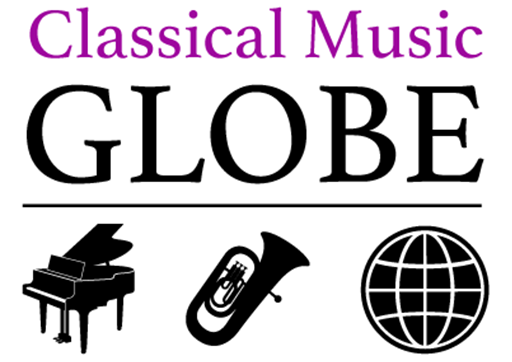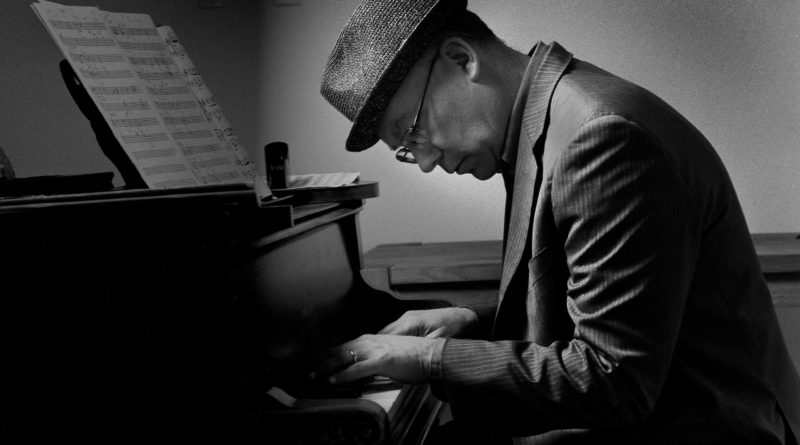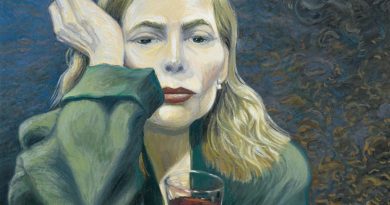Piano Colossus
An exclusive, career-spanning chat with Wayne Horvitz

For decades, pianist colossus Wayne Horvitz has been a bedrock of the avant-garde jazz landscape.
A musical polymath, the well-traveled Horvitz (D.C.-via-California-via-New York, and since the late Eighties, a Seattle staple), has put his own unique spin and voice on jazz and classical and electronic music. Best known, arguably, as the keyboardist in John Zorn’s legendary1 A ‘out’-jazz group Naked City, Horvitz’s path as titan of the downtown New York City avant-garde jazz scene was established long before then. As he tells it, Horvitz helped put the Knitting Factory (namely its original location on Houston Street) on the map as series curator, putting on the very first jazz shows there featuring friends like guitarist Bill Frisell and drummer Joey Baron (both of whom lived in the same Hoboken building as Horvitz in the 80’s) and Butch Morris, Fred Frith, John Zorn, Zeena Parkins, Ikue Mori and more luminaries of the scene.

Horvitz eventually hightailed it to Seattle in the late 1980’s, arriving just in time for the grunge movement to take off, then later on, with two business partners in tow, opened up the style-spanning The Royal Room, a music club, bar and restaurant. On any given night, Horvitz can be found playing a jazz set with Soundgarden and Pearl Jam drummer Matt Cameron and sharing bills with legendary producer Jack Endino (Nirvana, TAD) but more on that later.
The pianist is also keeping busy with his own musical projects. Released near-simultaneously in October, The Snowghost Sessions and Those Who Remain sublimely showcase the protean sensibilities for which Horvitz is known. On his debut piano trio record, The Snowghost Sessions (recorded at Snowghost Studios in Montana), Horvitz joined forces with drummer Eric Eagle and bassist Geoff Harper on a set of ghostly yet ecstatic “chamber music electronics” (as he’s called it) that crystallizes lyrical beauty and thrilling interplay and deep melodicism with the occasional noisy fit. Those Who Remain is another debut of sorts for Horvitz: it’s his orchestral debut. Inspired by the writings of Northwest poet Richard Hugo and commissioned and given a premiere by the Seattle Symphony, the concerto for orchestra and improviser is a two-movement composition for orchestra and improvising soloist featuring Horvitz’s pal Frisell.
The Globe caught up with Horvitz in upstate New York as he was working on new music and gearing up for tour to talk his two new records, the downtown scene, living in Seattle and his strange connection to the city’s grunge scene.
Did you plan on both two records—Those Who Remain and The Snowghost Sessions—being released at around the same time?
They were both coming to fruition and these days particularly, it’s so hard. There’s so much stuff out there and it’s so hard to get anyone to pay attention. It’s also an interesting narrative for people who know my music and for people who don’t know my music. It’s both sides of the same coin, you know?
They’re completely two different sounding records, too.
Well, the other thing about that is, and the most obvious to me but other people don’t think about it is I play on one of them and I don’t play on the other one (laughs). It’s as basic as that of what the difference is.

So you composed the string quartet (the piece on Those Who Remain) way back in 2004?
The string quartet but not the orchestra piece. The orchestra piece was premiered in late 2015. I just wrote for eight to ten hours a day for a whole month solid and came back and still had a lot to do—proofreading and cleaning it up and that kind of thing. The string quartet is pretty old; I think I wrote it in 2004 but I didn’t get around to recording it until recently. It was performed then I had it performed again in 2009 and then I sat on it. When this orchestra thing happened, I thought “Well, I need a companion piece for this CD and the string quartet was a logical companion because it’s also essentially a classical piece. But also the pieces had an improvising soloist so there was a connection and it made sense for them to be on the same CD.
Did you serve as conductor on Those Who Remain, the record you don’t play on?
No, I’m wholly unqualified to be a classical conductor (laughing). The guy who conducted the premiere was the conductor for the Seattle Symphony, Ludovic Morlot. I’m not a good conductor, it’s just a skillset I don’t have. But also, I think a lot of composers, even if they are conductors, it’s best for them not to conduct their own music, particularly at recording sessions because there’s so much stress going on and having to be done on time. We had like one three-hour session and if we’re late, I’d have to go spend another year raising money (laughing). You don’t mess around. I’ve had plenty of projects where I’ve spent days or weeks or months in the studio, hanging out and getting hooked on whatever pace you feel like. It’s pretty different.

Like in the piano trio for The Snowghost Sessions recording was that vibe?
That was especially that way because I wasn’t even planning to make a record but the process couldn’t have been more different. That was maybe the least stressful recording session I’d ever had in my life. I wasn’t even expecting to have had anything.
What intrigues me is people think of you as a downtown New York City avant-garde jazz guy but you’ve actually lived in Seattle for decades.
Definitely. It kind of blows my mind. I’ve lived in Seattle a long time and I used to think of myself pretty equally (as) East coast and West coast. I grew up in D.C. but I went to University of California after being in D.C. then I moved to New York for twelve, fifteen years. But now I guess I’m an actual West Coast person (laughs).
And you run a club there in Seattle?
Yeah, I own it but I’m trying not to run it into the ground. I have two partners, it’s not just me. You should look it up because they did some really awesome shit but there was a club in the nineties in Seattle called The OK Hotel. Nirvana, Soundgarden, Pearl Jam and then all the bands that didn’t get super well-known that were from that same era, right around the time that I moved to Seattle in the early nineties, early grunge, all that stuff, they all had their early gigs at The OK Hotel. In fact, I just played with Matt Cameron who is not only the drummer of Soundgarden but the drummer of Pearl Jam. I just played with Matt a couple of weeks ago. We do something every once in a while. I’ve known Stone Gossard for years because he owns this studio and he’s been really generous to the music community. Those people have been great.
But, anyway, The OK Hotel. It closed in 2001 I think because we had a little earthquake and the building was damaged. The two people who are my partners in the club that I run now, which is called The Royal Room, they are the two original people who started The OK Hotel and you Google “The OK Hotel and Nirvana,” you’ll see the very first time they played “Smells Like Teen Spirit” was at that club.
I’ve seen that before! So you have a major grunge connection.
Totally. It was a great time to move there. Chris Cornell, I guess, moved to L.A. I’m not sure, but of course now he’s gone and that is fucking awful. But so many of those people stayed. So many people in other cities when they get famous, they move to L.A., they move to New York and they take all their money with them. All three of those bands: Krist Novoselic was really involved in state politics for a while, Stone Gossard has just put a ton into the community and Pearl Jam’s put a ton into the community and Ben Shepherd from Soundgarden has been really generous. He helped pay for a piano that I was trying to put into a club.
You put on a very musically diverse lineup of bands at The Royal Room.
Absolutely. We put a ton of stuff on. We did a double bill the other night where it was this band I use Matt (Cameron) in occasionally and Jack Endino’s band, which is psychedelic and grungy—it’s awesome. Matt apparently, at some point, was like “You know, I’m just gonna play jazz.” It’s not as divided as people think.
Former Screaming Trees drummer Barrett Martin also leads a jazz band.
I actually played one thing on a record of his and I’m going to play some stuff on his new record. He’s a nice guy. Barrett is definitely in Seattle. I think he spends some time in L.A., too. He’s around a lot and all the people in his band are all old friends of mine that are more in the jazz scene. This great pianist named Ryan Burns who is one of my favorite all-time pianists and a bunch of other folks.
How long were you actually deep in the NYC downtown jazz scene?
I was there basically through the entire eighties. The original Knitting Factory I played at a lot. By the time the new Knitting Factory started, I played there a fair amount and by the “new Knitting Factory,” I mean version #2. There has been more since then but the one that was down right off of Canal Street. I think I had already moved when that opened but I played there a lot when I’d come back. But the first Knitting Factory, I actually ended up curating this series there before really anybody had heard of it and that was the end of my tenure. The funny thing about New York is not only do I remember playing the lofts but I got to play at CBGB’s a lot, Danceteria and Tier 3 and all these clubs. That was a great scene.
What do recall about the series you put on at the Knitting Factory?
Michael Dorf actually put out a book about the Knitting Factory, a book about the first six years, and he tells the story and there’s a little poster from the series. You could probably find it online. The way he tells the story, of course, isn’t how I remember it. But I remember that my friend Phillip Johnston, who had this band called The Microscopic Septet, called me up and said “I’m playing a gig at a restaurant and I double booked myself. Can you take the gig?” And I said “Sure.” He said “It pays $75 a man for a quartet.” So I thought it was background music; I thought it was a gig where you went to play just for people to listen. In other words, you weren’t responsible for bringing people out. There were the gigs that we did all the time where it was just at some restaurant and they don’t even put your name down. It’s just a gig to play for diners. We did shit like that all the time. Anyway, I had four nights at The Kitchen coming up, which was a really important gig for me. It was huge, a huge break for me so I was completely focused on that. I still needed $75—that was like half a month’s rent in those days. So I called up Dave Tronzo, who’s a really great slide guitar player, a bass player and a drummer—I had no idea who was on it—and I got there and it was at this place called the Knitting Factory. They decided to have jazz every Thursday night and they had no other music there. It had just opened and they didn’t have a liquor license so all they were selling was cheese, little sandwiches and cookies. I didn’t advertise at all, I didn’t try to get anybody to come because I had a completely different impression about what the gig was. I was trying to get people to come to The Kitchen for four nights. So I get there and of course nobody’s there and nobody knows what’s happening. It’s not a restaurant and it’s not a place people go to eat. So we played, there were three people and at the end of the night and he owes me $300. Michael Dorf was like, “Well, gee, I’m supposed to pay all this money and no one came” and I’m like “Gee! I’m just subbing for a friend, number one, and number two, no one ever asked me what the band was or anything. I just thought it was a casual gig playing background music.” So he was not happy and I said, “You still owe me the $300.” I kind of stopped and said “Well, what the fuck are you doing here,” nicely obviously, and I said “Why are you having jazz on Thursday night? You don’t have liquor license and you don’t have a piano. What gives?” And he said, “Well, I thought we’d try some music.” He had been kind of a rock promoter in Milwaukee. He had done some punk rock shows there. He was pretty young. He and his partner, Bob Appel, were trying to do this thing. So, I said “Well, have you ever heard of Bill Frisell, have you ever heard of Butch Morris, have you ever heard of Fred Frith, have you ever heard of John Zorn? Have you ever heard of Zeena Parkins or Ikue Mori?” and he was like “No, no, no.” So I said “I’ll tell you what. Give me a budget of $150 for eight Thursdays and I’ll book eight nights where they’ll just be solo concerts, two individuals each playing solo. I booked the first one with Butch Morris and Fred Frith and, of course, it was packed. Within six or seven weeks, the Knitting Factory was having music seven nights a week. But I deserve at least a little bit of credit.





What about The President? I love Bring Yr Camera.